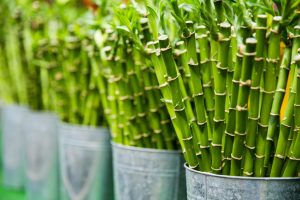Could bamboo literally be the green replacement for plastics?

The search for eminently biodegradeable products and materials to serve food, provide packaging and basically serve as an alternative to plastics has thrown up the following, so far:
- kulhar, the traditional unglazed clay cup from India
- bamboo
- a new plastics-free paperboard from southeast Finland, which would be suitable for disposable coffee cups and food packaging
I wrote about kulhars yesterday in my article for The National. Today, it’s bamboo’s turn.
It’s one of the more remarkable natural materials available to us. The Economist recently quoted the International Bamboo and Rattan Organisation, a Beijing-based intergovernmental body to say that bamboo is literally, the green equivalent of plastics. This, because it is renewable and low-carbon. It also said bamboo is now “part of China’s environmental leadership bid”.
This is hardly surprising, coming from an organization that’s supposed to talk up bamboo. But there really does seem to be something to this, at least in terms of the many eco-friendly uses to which bamboo is being put.
Other than disposable chopsticks, there’s bamboo flooring and beams. A big Chinese company called Taohuajiang has created non-corroding bamboo that carmakers like BMW and Lexus are considering as a replacement for plastic and wood in car interiors.

